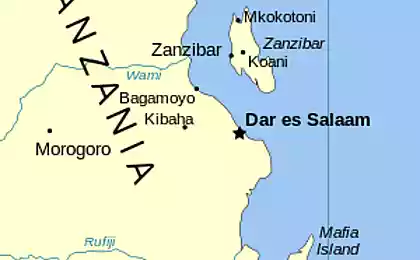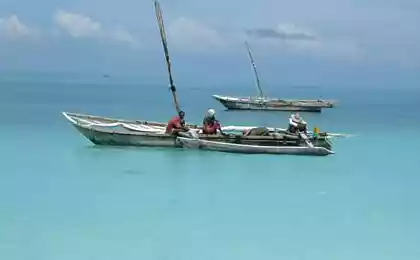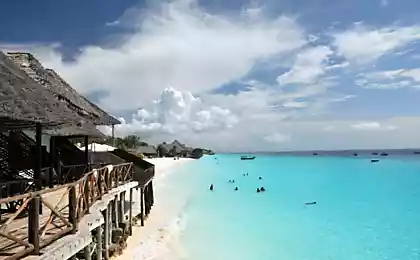2367
As women make a living Zanzibar
Photographer Joanna Lipper went to Zanzibar in the summer of 2009 to take a picture of women of different religious, ethnic and economic background, both in the city and in the countryside. She visited Jambiani - a village on the east coast of Unguja, where women earn their living by collecting seaweed. Seaweed in Zanzibar collected since the 1980s. There is no necessary infrastructure and technical equipment to process algae and obtain valuable extracts from them. Therefore, all the raw materials trafficked abroad. Without microfinance loans, improving education and community organizing among workers, gathering seaweed, which is an important source of income for women in general may disappear from Zanzibar.
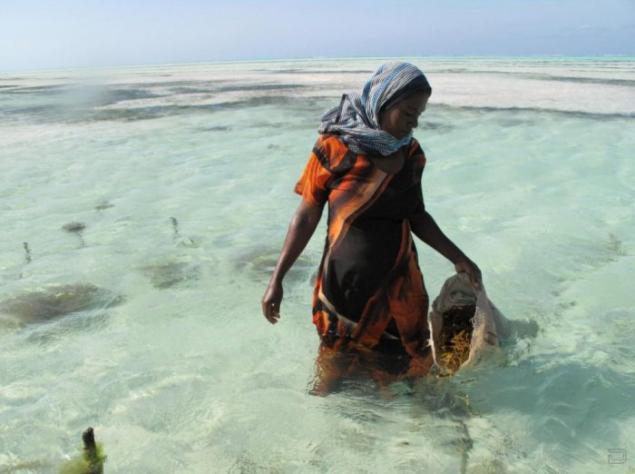
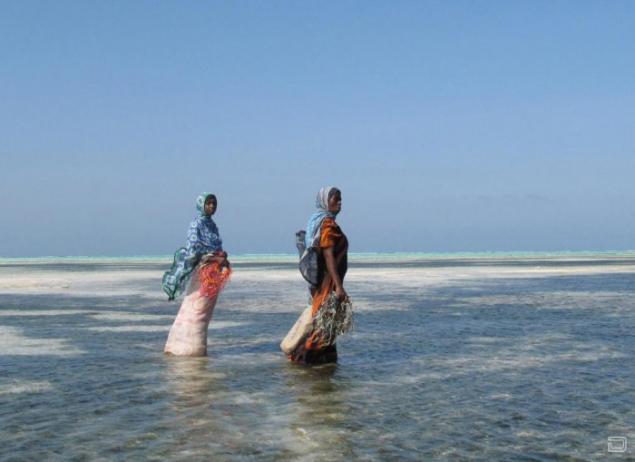
I wanted to capture the alienation of people involved in algae that sometimes seem dwarfed by the sea and the horizon. (Joanna Lipper)
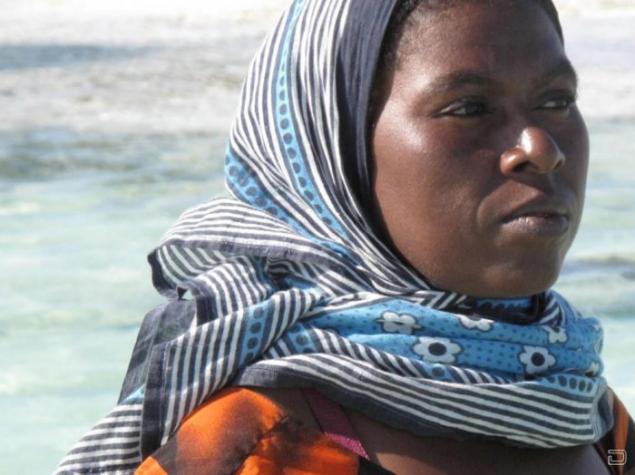
There is something sublime in the way some women look at the horizon through the sprawling ocean and beach seem so far away, so detached and devoid of technology and agriculture of modern life. (Joanna Lipper)
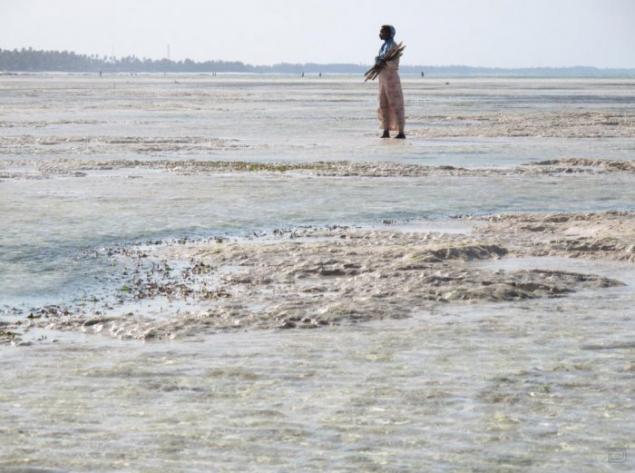
There is something sacred about these people and their closeness to nature. (Joanna Lipper)
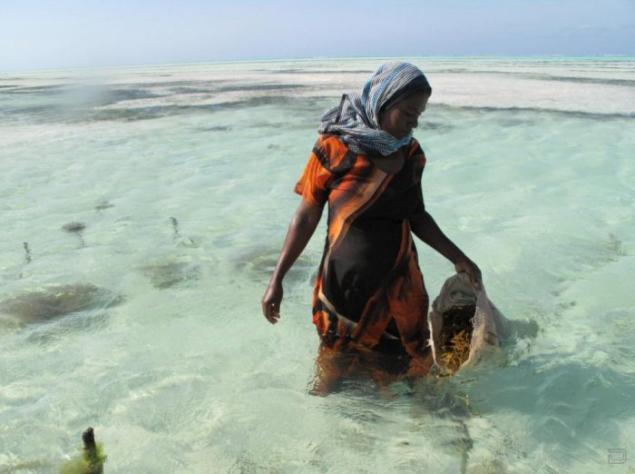
Algae are predominantly women, living in rural areas, is one of the types of jobs for which women receive cash. (Joanna Lipper)
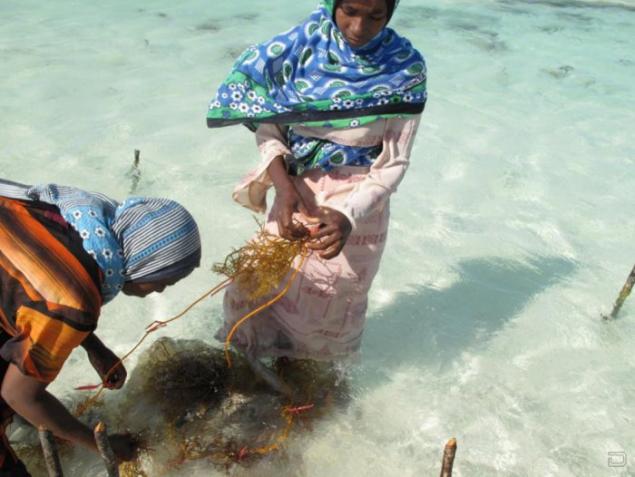
Today, about 3% of the population of Zanzibar is engaged in processing of algae, which in turn is approximately 20% of earnings from their exports. (Joanna Lipper)
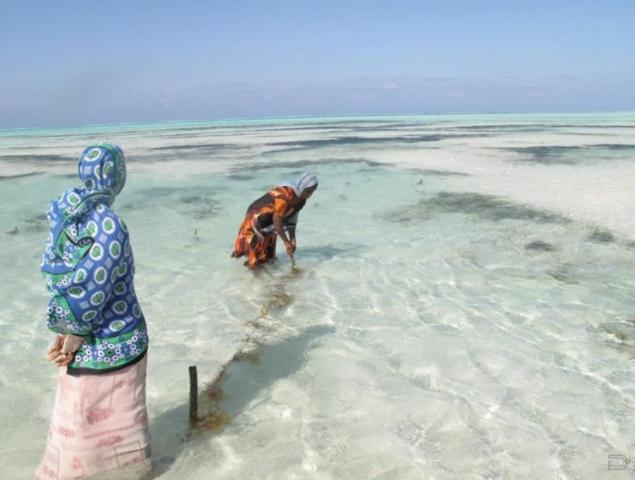
Thin thread connecting collectors seaweed in Zanzibar with the global economy, has become even thinner due to rising poverty and the fact that environmental and economic activities such as collecting seaweed, is not supported. (Joanna Lipper)
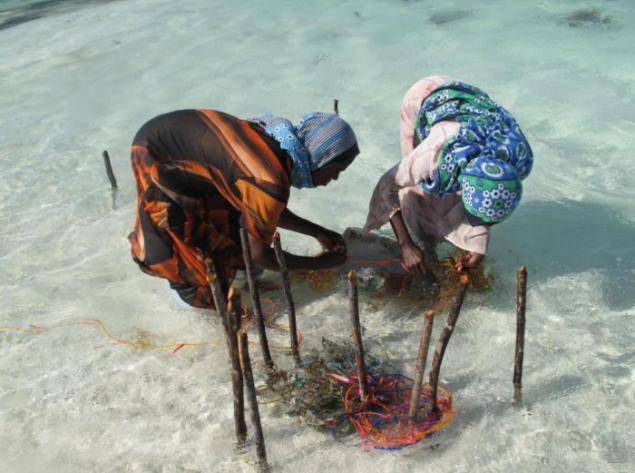
Direct contact of the hands of collectors, water and seaweed conjures up memories of the numerous paintings of female workers in such works as "cheapskate" by Jean-Francois Millet and «Two Peasant Women Digging» Vincent Van Gogh. (Joanna Lipper)
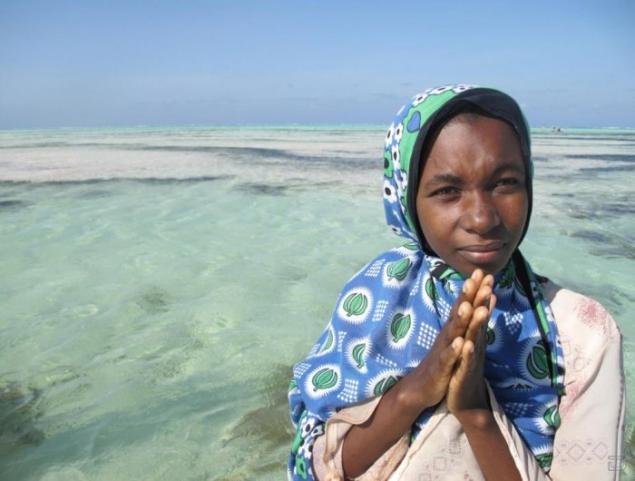
One of the main problems currently faced by the people of Zanzibar, is the lack of infrastructure and technology needed for processing the collected algae and receiving from them valuable extracts. That is why they are totally dependent on industrialized countries. (Joanna Lipper)
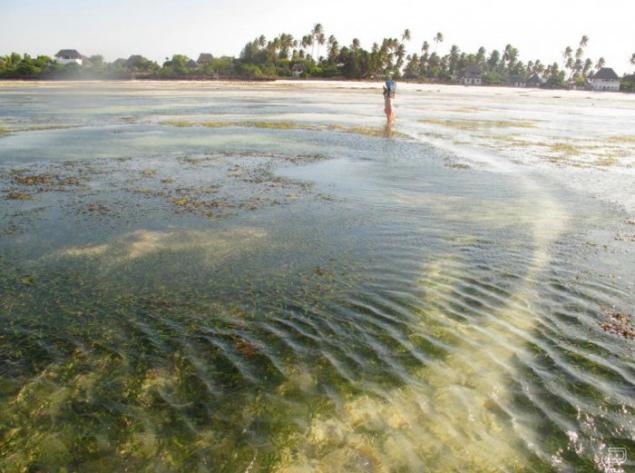
Many collectors are uneducated and do not know how to deal with local buyers. In isolated villages within Zanzibar these factors affect the low prices for raw materials supplied by them. (Joanna Lipper)
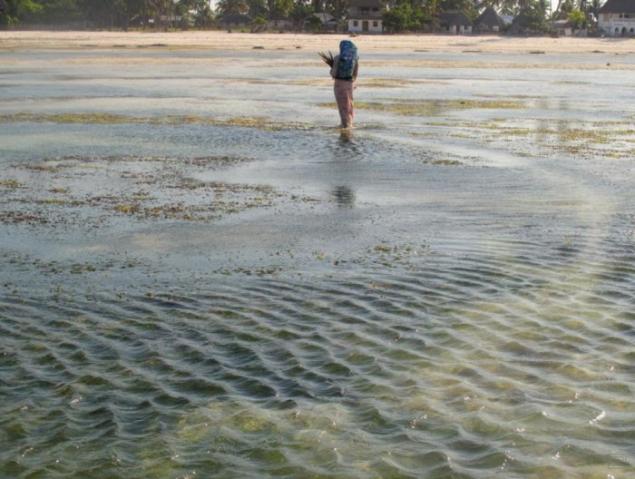
Often local buyers provide builders with tools such as ropes and pegs on the condition that they will sell them exclusively algae. Once the algae are dried in the sun, they are transported from the villages in Stone Town, and then - are exported to Europe and the United States. (Joanna Lipper)
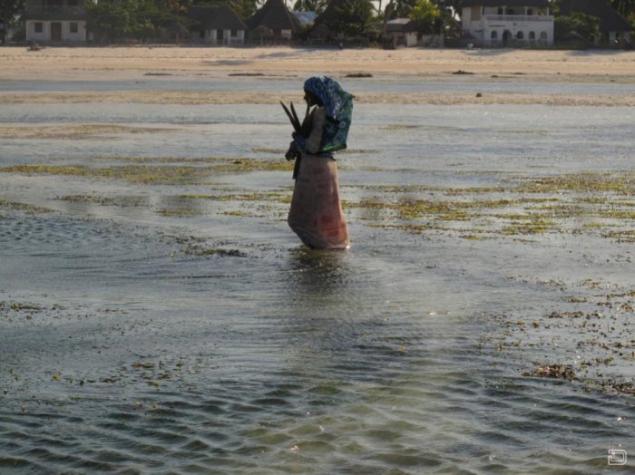
Algae are valued because of the substances they produce in the form of an extract, as well as its amazing ability to absorb huge amounts of carbon dioxide. Valuable algae extracts used in the preparation of food (dairy products, meat and vegetables), in the manufacture of cosmetics (lipstick and mascara), in the manufacture of paintings, toothpaste, air fresheners, drugs, as well as in agriculture - a sector in which collectors have seen marked improvements due to products such as «Kelpak». (Joanna Lipper)
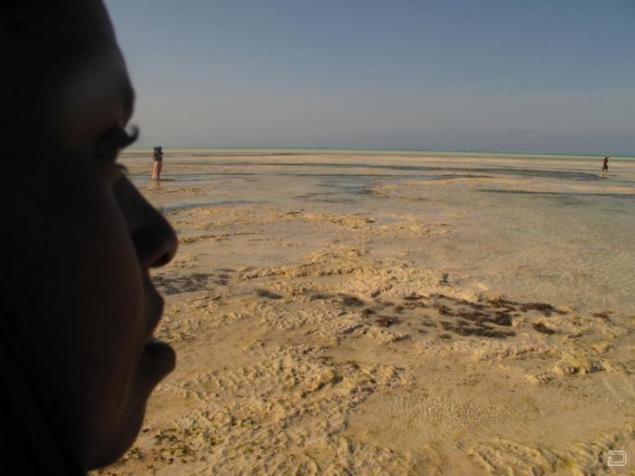
At the global level, import and export business of algae is $ 200 billion, only US imports of 50 billion each year. One buyer-Zanzibar declares that pays pickers seven cents per kilogram of algae. According to another report, the collectors of Tanzania, every two months receive about $ 500 per family. This equates to almost semi-annual earnings of fishermen. (Joanna Lipper)
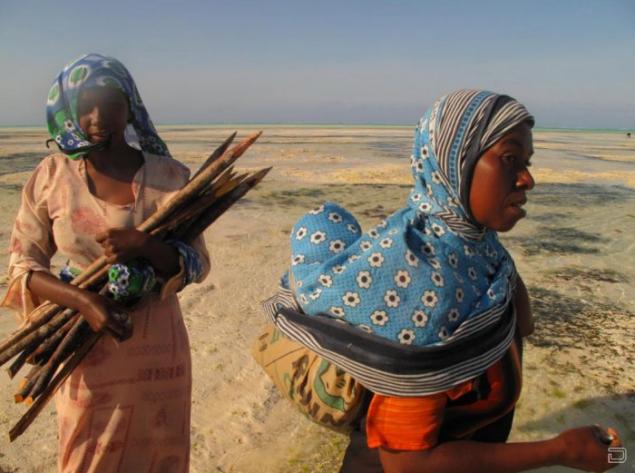
Fuel derived from algae, shows great potential in the field of transport as an alternative green biofuel with molecular structures that resemble those found in gasoline, diesel and jet fuel. (Joanna Lipper)
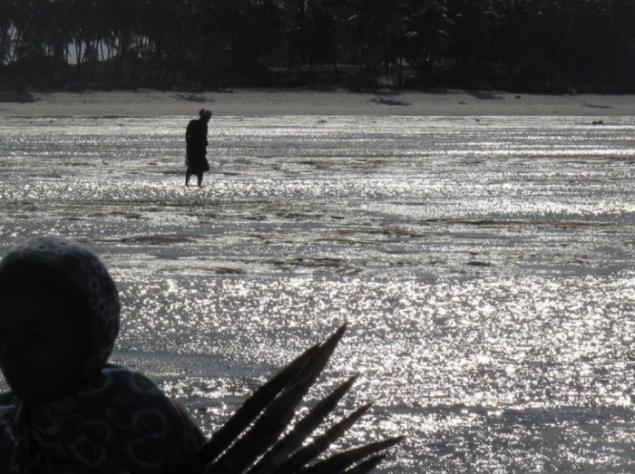
The company «Exxon» recently said it plans to invest hundreds of millions of dollars in the production of synthetic genetic varieties of algae. (Joanna Lipper)
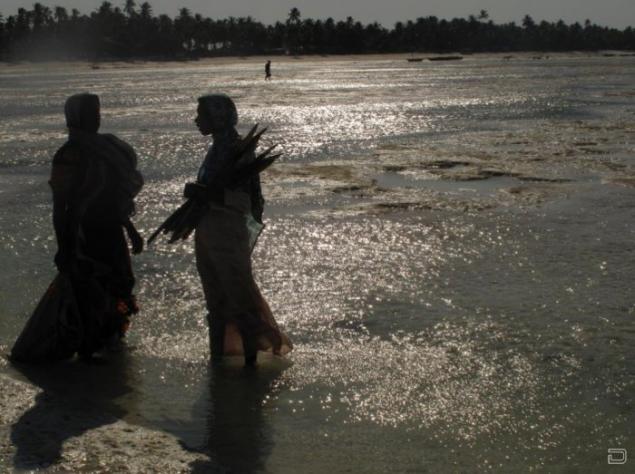
Without microfinance loans, improving education and community organizing among workers gathering seaweed, which is an important source of income for women in general may disappear from Zanzibar. (Joanna Lipper)
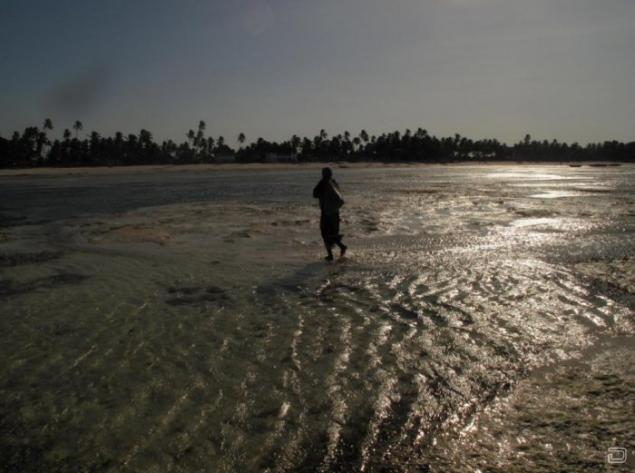


I wanted to capture the alienation of people involved in algae that sometimes seem dwarfed by the sea and the horizon. (Joanna Lipper)

There is something sublime in the way some women look at the horizon through the sprawling ocean and beach seem so far away, so detached and devoid of technology and agriculture of modern life. (Joanna Lipper)

There is something sacred about these people and their closeness to nature. (Joanna Lipper)

Algae are predominantly women, living in rural areas, is one of the types of jobs for which women receive cash. (Joanna Lipper)

Today, about 3% of the population of Zanzibar is engaged in processing of algae, which in turn is approximately 20% of earnings from their exports. (Joanna Lipper)

Thin thread connecting collectors seaweed in Zanzibar with the global economy, has become even thinner due to rising poverty and the fact that environmental and economic activities such as collecting seaweed, is not supported. (Joanna Lipper)

Direct contact of the hands of collectors, water and seaweed conjures up memories of the numerous paintings of female workers in such works as "cheapskate" by Jean-Francois Millet and «Two Peasant Women Digging» Vincent Van Gogh. (Joanna Lipper)

One of the main problems currently faced by the people of Zanzibar, is the lack of infrastructure and technology needed for processing the collected algae and receiving from them valuable extracts. That is why they are totally dependent on industrialized countries. (Joanna Lipper)

Many collectors are uneducated and do not know how to deal with local buyers. In isolated villages within Zanzibar these factors affect the low prices for raw materials supplied by them. (Joanna Lipper)

Often local buyers provide builders with tools such as ropes and pegs on the condition that they will sell them exclusively algae. Once the algae are dried in the sun, they are transported from the villages in Stone Town, and then - are exported to Europe and the United States. (Joanna Lipper)

Algae are valued because of the substances they produce in the form of an extract, as well as its amazing ability to absorb huge amounts of carbon dioxide. Valuable algae extracts used in the preparation of food (dairy products, meat and vegetables), in the manufacture of cosmetics (lipstick and mascara), in the manufacture of paintings, toothpaste, air fresheners, drugs, as well as in agriculture - a sector in which collectors have seen marked improvements due to products such as «Kelpak». (Joanna Lipper)

At the global level, import and export business of algae is $ 200 billion, only US imports of 50 billion each year. One buyer-Zanzibar declares that pays pickers seven cents per kilogram of algae. According to another report, the collectors of Tanzania, every two months receive about $ 500 per family. This equates to almost semi-annual earnings of fishermen. (Joanna Lipper)

Fuel derived from algae, shows great potential in the field of transport as an alternative green biofuel with molecular structures that resemble those found in gasoline, diesel and jet fuel. (Joanna Lipper)

The company «Exxon» recently said it plans to invest hundreds of millions of dollars in the production of synthetic genetic varieties of algae. (Joanna Lipper)

Without microfinance loans, improving education and community organizing among workers gathering seaweed, which is an important source of income for women in general may disappear from Zanzibar. (Joanna Lipper)

